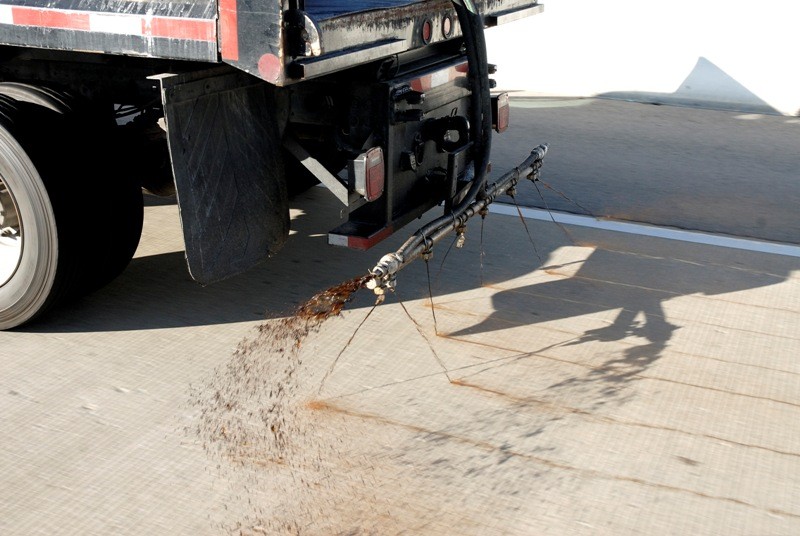
Like syrups on a snow cone, Halifax streets might be getting some delicious new flavours to help clear away icy conditions.
A request is being put forward next week by councillor Linda Mosher looking at best practices for street cleaning when salt isn’t working. The motion asks council to consider a staff report for ways to augment traditional rock salt applications with organic compounds like beet juice, cheese brine and molasses.
Organic compounds are not only more effective, but usually environmentally safer. They’re also much cheaper, since most are just waste products from other businesses. Halifax currently uses brine as a preventative measure on roads, but the salty-mixture doesn’t work in very cold temperatures. The city does lay down sand and gravel for traction, but that does nothing to melt the ice.
Beet juice is actually one of the more common road salt alternatives. The thick, brown liquid is a byproduct of refining sugar beet juice. Unlike the red power cleanser you put in your smoothie, this substance has a smell similar to burnt coffee or soy sauce. It’s apparently safe to drink.
Sprayed on roads preventively, the sugary concoction increases road salt’s effectiveness in cold temperatures and helps clump the salt together. Reducing the scattering and bouncing of salt saves the city money and keeps the crystals on the roads where they’re needed. This organic liquid deicing has been used in several Ontario municipalities for the last five years, and is sprayed in over 175 American towns.
Beet juice on the roads doesn’t stain, there have been some complaints of clogging up trucks. Sugarcane molasses is an alternative (as used on Minnesota’s icy roads). But molasses left shoe prints in Milwaukee homes when the Wisconsin city tested it out several years ago. Ingeniously, America’s cheese capital instead turned to mozzarella brine for a road salt alternative.
“You want to use provolone or mozzarella,” a Milwaukee public works manager told the New York Times last winter. “Those have the best salt content. You have to do practically nothing to it.”
A study on test roads found the cheese brine could save 30 to 40 percent on road salt. The only issues were a “faint odour of cheese” and attracting rodents (seriously).
The beautiful part of Milwaukee’s cheesy streets is the city already had a local waste product waiting to be repurposed. It’s the same practical thinking that caused Ankeny, Iowa to buy nine tons of garlic salt a local spice factory was trying to unload. Mixed with road salt, the resulting mixture added traction to the roads and “filled the air with a garlic aroma.”
"If you use a clove of garlic in your home and you're making spaghetti, and you know how that kind of fills the air with a garlic smell? Imagine nine tons of it," says Ankeny’s public works administrator. "Yes, it can make your eyes water a little bit.”
Halifax probably has a butt-load of something just sitting around that we can slather all over our streets and sidewalks. We just need to be creative. Spent microbrew grains? Feta brine? Old peanut shells like days gone by at Maxwell’s?
If you want to test out some of these methods out at home, National Geographic recommends combining salt with beet juice or pickle brine in a spray bottle. Spray liberally on front porch and mixed greens.
















